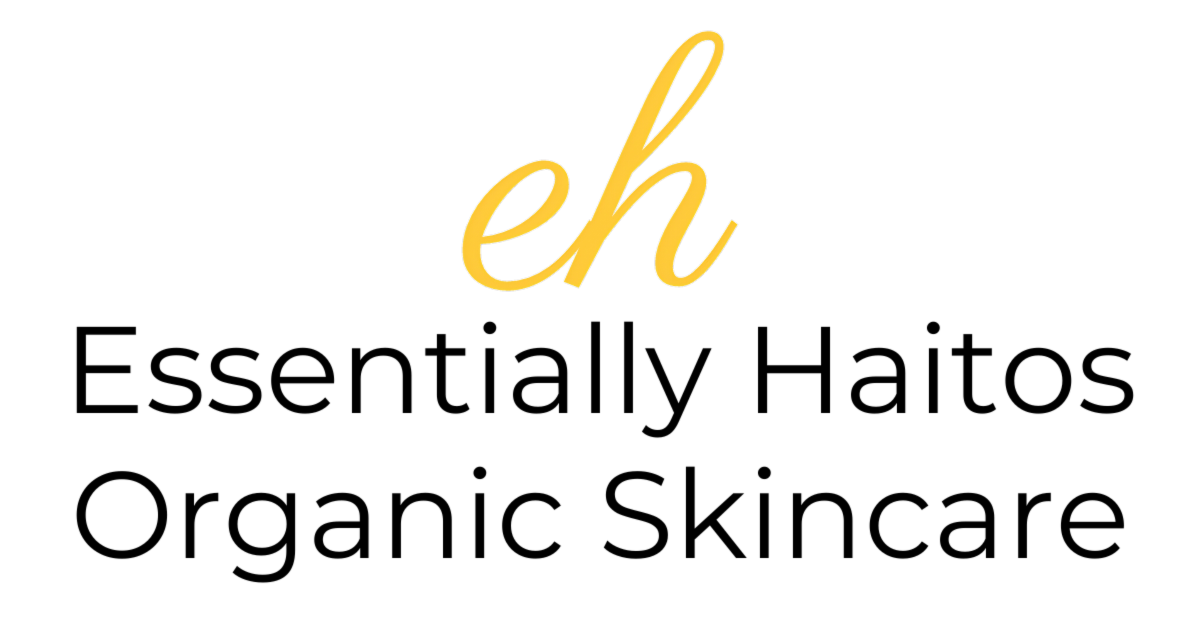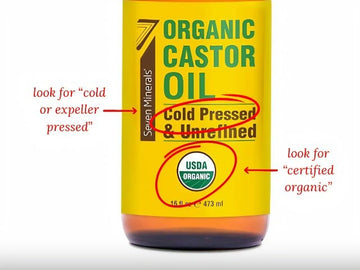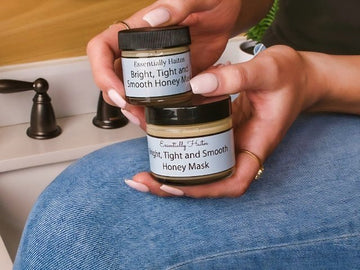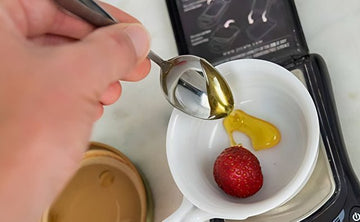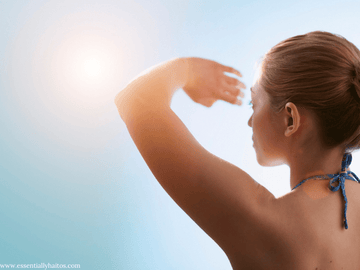This article was originally posted on August 11, 2021. The information contained within it is as current and relevant as the day it was written. We're choosing to repost it because of a new product in our (and your) not to distant future - a lightweight, bakuchiol-based serum! We can't wait to share it with you!
What Is Bakuchiol?
Bakuchiol (buh-koo-chee-all) is a cosmetic ingredient that’s considered a true natural retinol alternative, without the irritation, photosensitivity or general concerns associated with traditional retinol products. It comes from the seeds of the Babchi plant, which has been used for centuries in Ayurvedic and Traditional Chinese medicine.
Is Bakuchiol Better Than Retinol?
If you’re looking for a gentle and/or natural alternative to retinol, then the short answer is YES - Bakuchiol offers similar skin benefits without the negative-side effects of retinol.
A few years ago, I learned about the negative side-effects of retinol the hard way - I experienced what my dermatologist described as a “slight” burn (i.e. my skin got red, flakey, overly dry and irritated – not exactly the look I was going for nor the results I thought I would see).
Retinol is, however, considered the gold standard of anti-aging skin care by dermatologists and other beauty experts – it’s just not for everybody (by choice or necessity) – so I was thrilled when Bakuchiol hit the market!
What Is the Difference Between Bakuchiol and Retinol?
Bakuchiol has a different chemical structure than retinol – yet it is considered a true retinol alternative. Clinical studies show that it functions similarly to retinol - and the best part is that bakuchiol does not cause the same negative side-effects as retinol.
With retinol, you must be extra aware of photosensitivity (your skin is more sensitive to sunlight and susceptible to sun damage) – therefore, it should only be applied at night. SPF can help protect you from UV-damage, however, if you do not use sunscreen in your daily routine, don’t use enough sunscreen, or simply forget – it puts you at risk of skin damage when using retinol.
Bakuchiol is shown not to be photosensitizing (see below).
Clinical Studies
A 12-week clinical study applying 0.5% bakuchiol topically demonstrated a significant reduction in multiple signs of aging, reducing the look of fine lines and wrinkles, as well as improving skin tone, elasticity, and firmness. The study also showed that bakuchiol and retinol performed similarly in terms of photoaging (59% reduction in the appearance of hyperpigmentation). The study also confirmed that there are no irritating or photosensitizing effects to skin.
Bakuchiol: Why We Love It
- Has a retinol-like effect on skin, visibly reducing wrinkle depth and skin roughness.
- Acts as a broad-spectrum antioxidant, fighting visible signs of aging caused by environmental stressors.
- Supports collagen-depleted skin by visibly promoting a firmer-looking complexion.
- Contains antibacterial properties that help to reduce the appearance of acne and occasional breakouts.
- Visibly improves the overall look of skin without negative side-effects.
Looking for help with fine lines and wrinkles around your eyes:
Bakuchiol And Babchi Oil Are Not the Same
There is only one manufacturer of cosmetic-grade bakuchiol. Babchi oil, psoralea corylifolia seed extract and oil-infusions made from babchi seeds are not the same as bakuchiol. The pure form of bakuchiol (what we use in our products) is the one used in clinical studies to demonstrate its skin benefits.
When you check the ingredient list of a product claiming bakuchiol, make sure you see the word Bakuchiol (and not Babchi oil (psoralea corylifolia)).
1% Is The Maximum Recommended. More Is Not Better.
The maximum recommended percentage of bakuchiol in a facial care product is 1%, a standard set by the manufacturer. It is, therefore, what we use in our products containing bakuchiol. (We got your back!)
However, there are many products trying to one-up each other by going above this recommendation, without any regard to the safety-risk this poses to the consumer. Just be careful and know what you are buying.
What Are the Downsides to Bakuchiol?
Patience (not always my strong suit). Bakuchiol does not deliver dramatic visible results overnight, which is actually better for the health of your skin.
The effects of this retinol alternative improve with time. So, a little bit of patience and consistency is all it takes for you to see the benefits in your skin.
Clinical studies show visible improvements in fine lines, wrinkles, skin tone and elasticity starting at week 4, but most significant at week 12.
Is Bakuchiol Right for My Skin?
Bakuchiol is a wonderful option if you are searching for a gentle and/or natural product that targets visible signs of aging. If you’re looking to incorporate a natural product that will improve the look of fine lines, wrinkles, loss of firmness and overall radiance, bakuchiol is a great option.
Bakuchiol is recommended for most skin types. It’s an ideal retinol alternative for sensitive skin that is not able to tolerate retinol’s side-effects. If you find that your skin is easily irritated or reactive to most products, we recommend a patch test first. Everyone is unique in their response to skincare products, no matter how gentle or natural a formula is.
NEW Clean B Soft Honey Moisturizer (with 1% bakuchiol): $39
How To Use:
Unlike retinol, bakuchiol can be used during the day without concern for photosensitivity. However, we recommend incorporating it into your evening routine, when skin has switched over from defense to repair mode. Personally, I use it both AM and PM.
You can use Bakuchiol confidently with other treatments, such as acids, as it plays well with most skincare ingredients. However, skin reactions are more likely to occur when you overload your face with too many active ingredients. We always recommend erring on the side of “less is more” when it comes to the delicate skin on your face.
The Bottom Line
If you’re still on the fence about bakuchiol being a better option than retinol, you may just have to experience it for yourself to find out. It boils down to your personal preferences for skincare as well as the unique needs of your skin. What we can say with confidence is that it’s a promising option for those looking for a gentle and/or natural alternative to retinol, one that delivers similar benefits without the negative side-effects.
And don’t forget, not all bakuchiol products are safe for skincare application nor deliver the results demonstrated in clinical studies, especially if they do not contain purified bakuchiol. Read your labels.
FAQs
Does bakuchiol minimize dark spots and hyperpigmentation?
Bakuchiol reduces the appearance of uneven skin tone and dark spots, comparable to the effects of retinol. Two clinical studies in 2014 and 2018 demonstrated a significant reduction in pigmentation using .5% bakuchiol over a 12 week period.
Does bakuchiol help with acne?
Bakuchiol contains anti-inflammatory and anti-bacterial proprieties. One clinical study conducted demonstrated that 1% bakuchiol applied twice daily reduced acne by 57% after only 6 weeks.
Is bakuchiol safe to use during pregnancy?
Currently, there is not enough data available that indicates whether or not it is safe to use during pregnancy. As always, we recommend checking with your doctor when pregnant or nursing.
Is bakuchiol suitable for sensitive skin?
Bakuchiol is a very promising retinol alternative for sensitive skin. Studies show that it’s less irritating than retinol, however, we recommend a patch test to ensure skin compatibility. Contact me at karen@essentiallyhaitos.com for a sample if you are concerned about sensitivity.
How long before I see results from a bakuchiol serum?
Based on the data from numerous clinical studies, on average, your skin will begin to show visible signs of improvement after 12 weeks of use. (Patience, Grasshopper.)
Is bakuchiol vegan?
Bakuchiol is vegan. It’s sourced from the seeds of the Babchi (psoralea corylifolia) plant.

